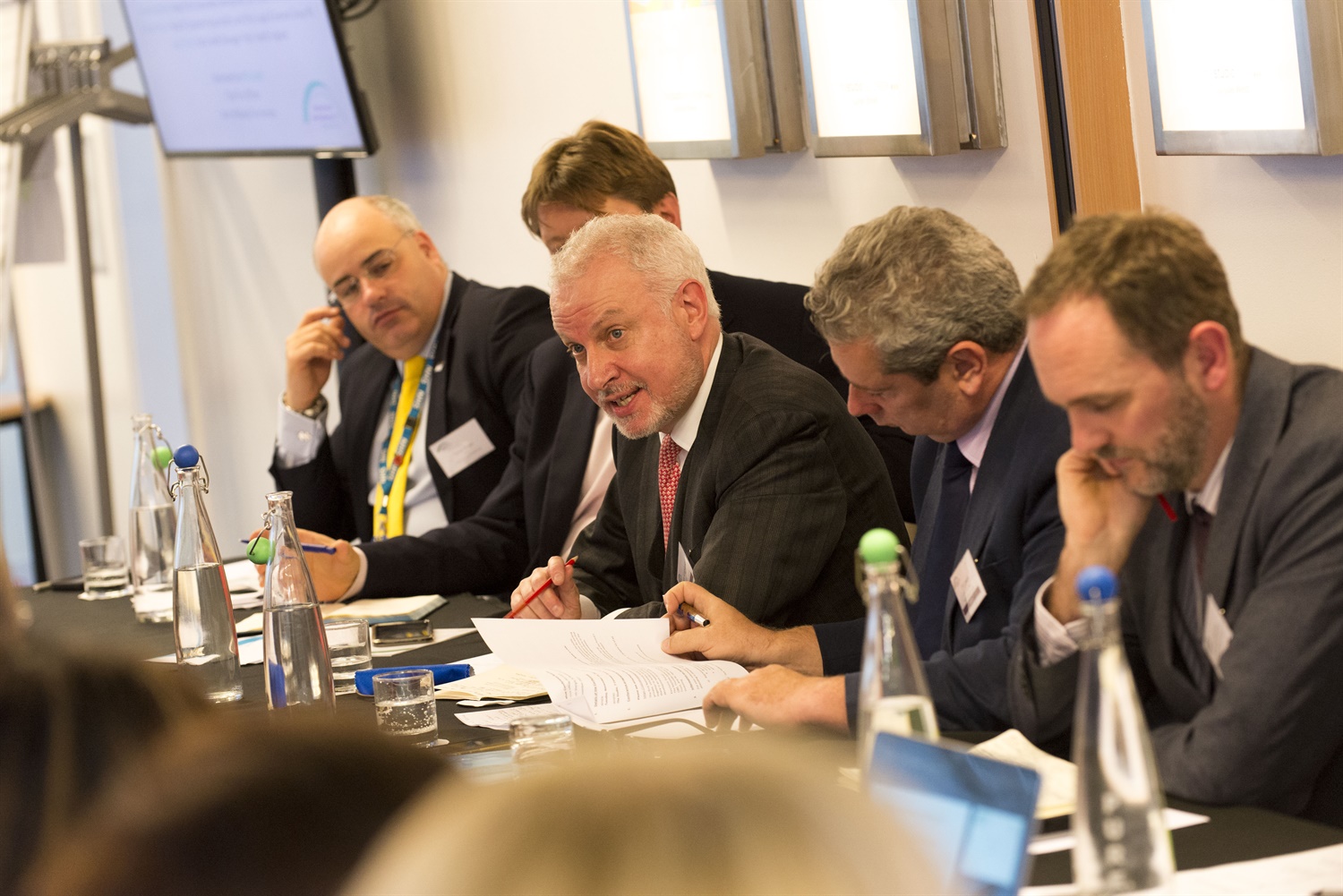13.12.17
National Social Value Conference 2017: Doing something revolutionary
At a time when local government is looking to squeeze extra value from procurement, original thinking can make all the difference. PSE’s Josh Mines reports from the National Social Value Conference 2017, where delegates heard all about the benefits social value can bring for the public sector.
“Doing good is good business.” That’s the message which underpins social value, a concept which Hazel Blears (pictured) has championed for years in Whitehall before recently moving to a role in local government. “When I was in Parliament, I actually set a group up called ‘Doing Good is Good Business,’” the former MP told the crowd at the National Social Value Conference.
“You do the right thing, you get market competitiveness and differentiation to everyone else in the market, whilst also driving more customers into business. That hasn’t changed.
“It should get to the point where doing good is good business, and it reinforces a different set of behaviours and considerations until you’ve made a revolutionary change.”
Social value is an exciting, innovative, yet simple concept. In short, it’s the idea that small changes to the way councils procure services can yield added benefits both financially, for authority budgets, and socially, for the communities they serve.
In today’s volatile business environment, Blears argued that social value is not just something councils should do to save money, but an idea that they, along with the companies they work with, need to champion in order to thrive in the future.
“All the talk about responsible capitalism unites about 99% of the British population,” she stated.
“The big challenge is, what does it mean? People have lost trust in institutions, whether it’s business, politics or journalism; people feel angry and left out, and there’s an appetite for us to act in a different way.”
A serious game changer
Crucially, social value offers a fresh approach to procurement and a way of saving authorities money in the long run.
Terry Brewer, outgoing chairman of the Social Value Portal, who hosted the conference, summed it up: “The reason I think social value is good is because it’s a serious game changer.
“Budgets are going down in the public sector, and you can argue about how much it’s going down, but whatever figure you take, it’s a large sum ‒ and social value can help close that gap.
“It’s hard to close all of that gap, but it can help. What I’m a bit surprised about is why the whole public sector has not adopted social value across all their procurements.”
There are a number of answers to that question, but one of the obvious ones that chief executives often come up with is financial. For councils already dealing with strapped budgets, the suggestion that more should be spent on activities like embedding social value policies into an authority’s procurement processes can seem counterintuitive.
But as Brewer said, the upside to this extra spend can be considerable. “Even if you are having to spend £150,000-£200,000 on implementing these policies, the outcomes can be significant,” he explained. “We are seeing a minimum of 20% additionality on contract costs from social value initiatives. So if you have a budget of £100m on third-party spend, then even if you take out low-value spend you are getting at least 20% back into your communities.”

West Midlands: leading the way
Seeing as the event was held in Birmingham, it seemed only natural that there should be some drum-banging about the good work going on in the West Midlands. This came in the form of metro mayor Andy Street, an ex-John Lewis boss who should know better than anyone the way to deal with problems in a business-like way (more on page 43).
“The country is always talking about the productivity challenge and we are at the heart of that,” the mayor stated. “It’s all been about getting behind the high-growth and high-value sectors where technology has been applied to drive out that productivity.
“We have pulled out a number of targets for social value,” he continued. “The issue that we are trying to tackle is in promoting local skills and employment. We have some of the most successful economies in the country, in Solihull for example.
“But then, a few short miles down the road, we have some wards which have some of the highest rates of unemployment in the UK. Absolutely, we have huge success, but also huge deprivation, so we have to try and balance and share that growth more effectively.”
His speech also focused on the considerable funding which the area was receiving from its first devolution deal, which was to be solidified further by a second deal confirmed by the chancellor in the Autumn Budget.
Taking a collaborative approach
A key component of both these devolution deals is in strengthening and capitalising on the benefits that HS2 will bring. As Rachael Morgan, head of procurement at the West Midlands Combined Authority (WMCA) said, it’s an area where social value, once again, has a part to play.
“Social value is maximising the benefits of HS2, delivering jobs and improving the integrated transport network through the added investment in productivity and skills to enable the provision and take-up of apprentices,” she stated.
For this to be successful, Morgan said that WMCA found it had to work in a collaborative way that brought stakeholders together to talk around the same table. “We formed a social value taskforce group in 2016 and that has been instrumental in delivering our policies,” she explained.

“One of the biggest themes was having a collaborative points policy and members of the taskforce group, including constituent members of the combined authority, so we had a lot of people involved at the start.”
From there, the head of procurement argued it was vital suppliers were brought into the dialogue to contribute their thoughts to the direction of policymaking.
“I also enlisted a number of small and local suppliers to understand how that policy would help them and how we can work with them as well,” Morgan explained. “Within there, we have considered and complemented the combined authority constitution, the strategic economic plan for Street’s renewals plan, and also local authority plans, practices and individual strategies.
“The benefits of our policy are a collaborative and consistent approach. It will create skills and employment in the local region and create more opportunities for small suppliers.”
In testing times for local government, innovative strategies like social value are a necessity rather than an accessory for councils.
What the crowd at the National Social Value Conference showed is that there is hunger for reform, and an appetite to look at things differently and drive real change in local government.
Though social value can be tricky to implement, and initially can come with a price, it’s clear that in the long term it’s this collaborative, original thinking that could be just what the public sector needs to save money and deliver even better services.
FOR MORE INFORMATION
Tw: #BridgingTheGap